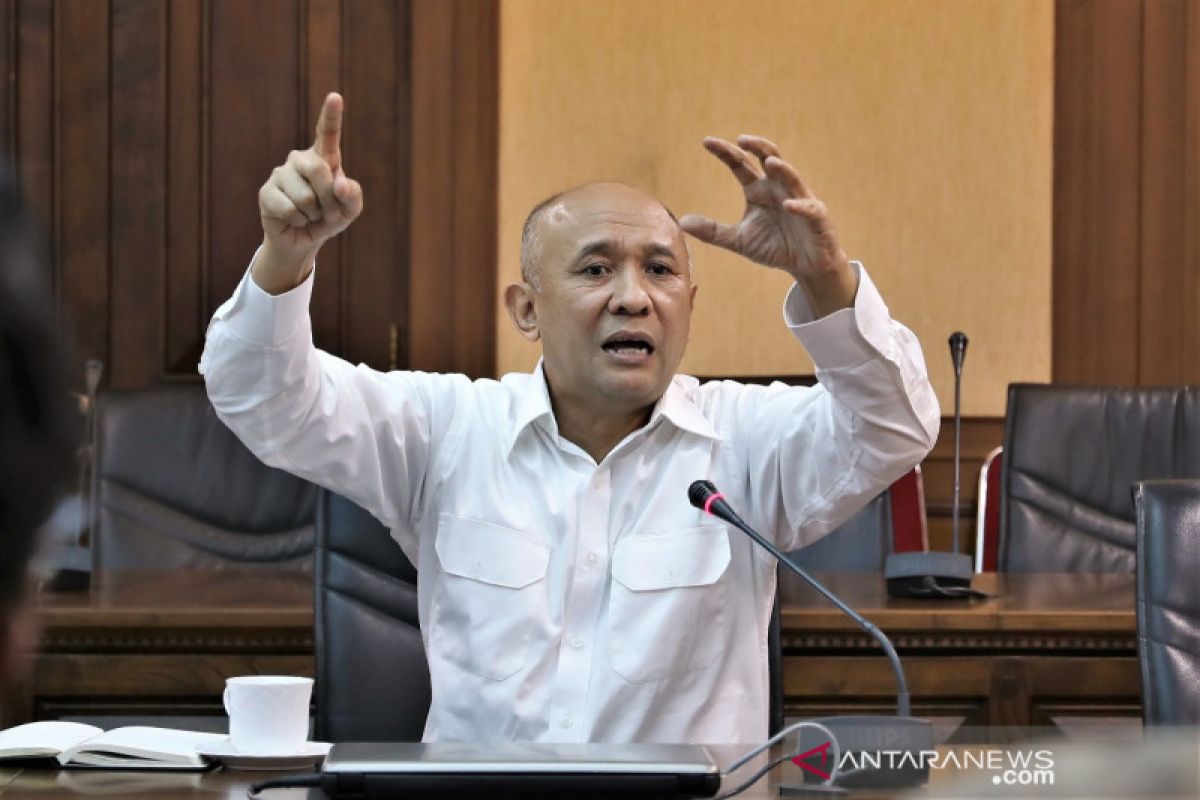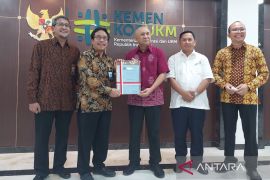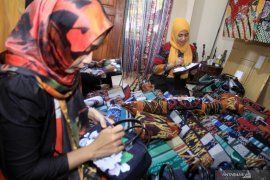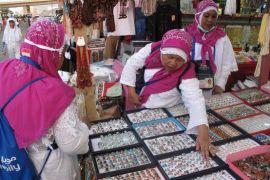I see several SMEs adapting and doing business to align with new demands. I am optimistic that MSMEs would always remain flexible and dynamic to tap new business opportunitiesJakarta (ANTARA) - Minister of Cooperatives and Small and Medium Enterprises Teten Masduki projected that cooperatives and micro, small and medium enterprises (MSMEs) were still likely to develop in the midst of the COVID-19 pandemic.
"I see several SMEs adapting and doing business to align with new demands. I am optimistic that MSMEs would always remain flexible and dynamic to tap new business opportunities," Masduki noted in his statement on Tuesday.
The minister pointed to a change in consumer behavior during the COVID-19 emergency and the implementation of large-scale social restrictions (PSBB) in some areas.
Recorded sales in e-commerce from March 2020 continue to rise to 18 percent.
"This is amazing. The stay-at-home policy encourages the sales of primary necessities, where the food and beverage requirements of the community during the PSBB from MSMEs rose 52.6 percent, while school needs rose 34 percent. The requirement for personal protective equipment, such as masks and hand sanitizers, also grew by 29 percent," Masduki noted.
However, Masduki acknowledged that MSMEs connected with this online market reached only some 13 percent, or around eight million business operators.
In the meantime, the remaining 70 percent are not yet connected since they lack basic infrastructure, including minimal literacy.
The minister called for greater e-commerce penetration, so that MSME products are increasingly sold in the online market and not solely dominated by imported products.
Furthermore, MSMEs not yet connected to the financing system will be able to directly enter the relaxation program. Thus, later on, all SMEs can be connected to the financing system.
Related news: President implements five schemes for MSME protection amid pandemic
Related news: Government to offer economic stimulus to MSMEs affected by COVID-19
Masduki is optimistic that several parties, including the United Indonesia Micro Small and Medium Enterprises Entrepreneurs Committee (KOPITU), would encourage those that never received funding from banks, such as the micro credit (KUR), to be able to obtain funds from the relaxation program or to a savings and loan cooperative.
Activation and expansion of market absorption have also been a program of the Ministry of Cooperatives and SMEs to encourage the improvement of MSMEs, so that they can rise up the ranks.
"This is why we continue to find a solution," Masduki remarked.
Some of these MSMEs do not have shops, and their market is limited to the surrounding areas. Hence, they should be encouraged to take the leap into the online market.
"Being linked to the online market does not necessarily mean that direct sales will increase," Masduki stated.
The minister highlighted that competition in the online market, in terms of the brand and quality, is also a crucial factor. The main area of concern in terms of MSMEs, is that there are too many MSMEs brands for one type of product. For instance, coffee products, chips, bakpia, and so on.
The ministry will also consolidate through Smesco Indonesia that will launch a joint brand scheme.
Furthermore, the production capacity at MSMEs is still low, Hence, if they migrate to an online market having a national and export market, but with limited production capacity, they will lose consumers.
"The MSME consolidation is an important area to focus on," the minister emphasized.
To this end, Masduki highlighted the five steps outlined by the government to tackle such problems: social assistance programs for businesses, tax incentives, financing stimulus, new loans, and SOEs as a buffer for agricultural and fishery products. Related news: Indonesians asked to prepare for new normal
Related news: Deputy Trade Minister pushes MSME development with Google's help
EDITED BY INE
Translator: Hanni Sofia, Azis Kurmala
Editor: Fardah Assegaf
Copyright © ANTARA 2020












